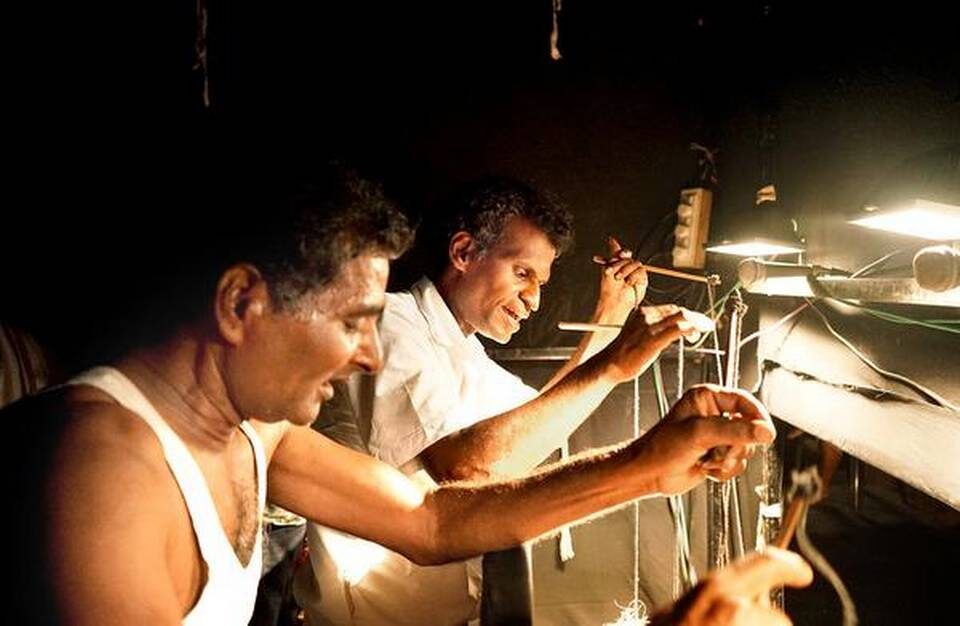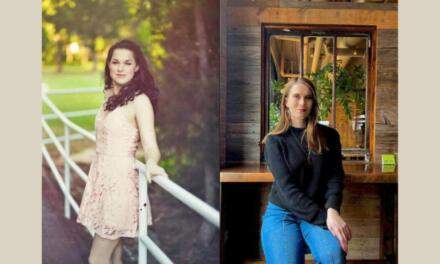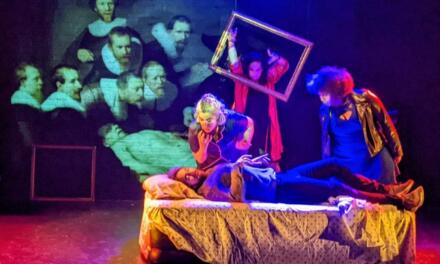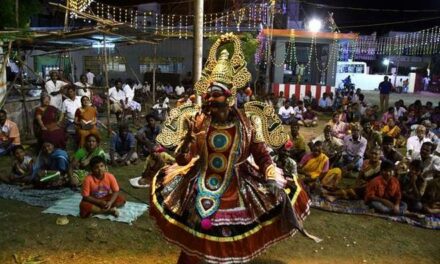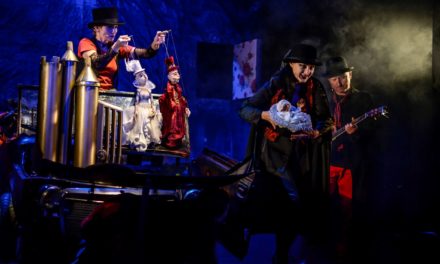There was a new energy about Mu Harikrishnan’s terrace. In the village of Yervadi near Salem that evening, over half a dozen shadow puppetry artisans and musicians moved about busily, giving final touches to their stage.
They had worked on this for two days. Leather puppets were dusted — they had been wasting away for three months due to the lockdown — and lights were set up.
Players of instruments such as mugaveenai, mridangam, harmonium, and kai thalam took their places, and the legendary ‘Ammapettai’ Ganesan, the soothradhari who manoeuvers the strings and is the voice of the lead characters, took his position.
At 6 pm sharp on June 21, they went live on Facebook for the first time ever.
Photo from the original article.
“We had over 600 people viewing the show,” says Harikrishnan, who put it all together. The 46-year-old, who has been organizing therukoothu, thorpaavai Koothu, and marapaavai Koothu (street theatre, shadow, and string puppetry) shows for 15 years in Tamil Nadu, had put out an invite on social media a week ahead, announcing the show.
He also included a clause that said that those interested can donate ₹100 per head. “Around 40 people sent us donations,” points out Harikrishnan, adding that he was happy that he was able to pay at least something to the artisans; every bit of encouragement is precious in these times.
Streets to screens
Harikrishnan is from a family of street theatre artists — his father was into the art and so was his grandfather.
“The past few months have been tough on us. We belong to the crowds — temple festivals, funerals, and other events where people gather — for whom we perform Koothu, sometimes for eight hours at a stretch.”
With the lockdown forcing his audience to stay indoors, Harikrishnan decided that they needed to find a way to take shows to them. “We have no choice but to adapt; the situation is such,” he says.
While Harikrishnan, who also writes on street theatre artistes of the Kongu region, wanted to find an alternative source of income for Koothu artists, he also wanted to make sure that the art form was constantly in public view.
“This is important for the language as well as the arts. Only if they are in use at all times, will they survive in the long run,” he explains. “Whether there is famine or war, art should continue to do its job. We’ve had some great literature during some of our worst wars.”
Photo from the original article.
Their shows are based on the Ramayana and the Mahabharata. For their first Facebook live, they chose to do ‘Hanuman Thoodhu’, in which Hanuman goes to meet Sita who is being held captive by Ravana. The content, explains Harikrishnan, had to be tweaked for the online space and cut down to one hour.
Among the best things the experience gave them, are the many perks that come with technology. For the first time, 64-year-old ‘Ammapettai’ Ganesan, who has been performing for more than 50 years, was able to hear his voice clearly during and after the show.
“Usually, while Koothu is on, the performers hardly hear their own singing. There’s a lot of crowd and disturbance,” explains Harikrishnan. But now, he was able to record and playback Ganesan his performance. “He was thrilled,” he adds.
Harikrishnan is busy planning a traditional string puppet show now. He realizes that getting the artistes to gather on his terrace — they are spread in various villages in and around Salem — and convincing them to do short formats, is a mammoth task.
“This is what I thought when I planned our first show,” he says. “It was not easy. We made mistakes; tempers ran high; we even got into fistfights, shirts were torn…” he chuckles. “But in the end, we did it.”
This article was originally posted to thehindu.com on July 1, 2020, and has been reposted with permission. Read the original here.
This post was written by the author in their personal capacity.The opinions expressed in this article are the author’s own and do not reflect the view of The Theatre Times, their staff or collaborators.
This post was written by Akila Kannadasan.
The views expressed here belong to the author and do not necessarily reflect our views and opinions.

